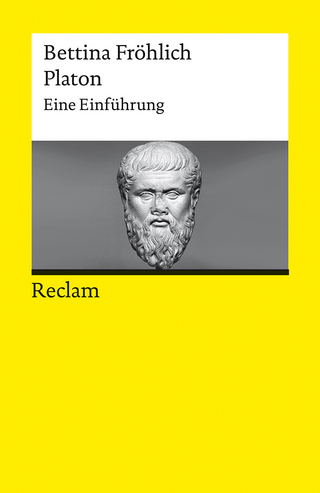
Richard Rufus of Cornwall: In Aristotelis De generatione et corruptione
Seiten
2011
Oxford University Press (Verlag)
978-0-19-726499-7 (ISBN)
Oxford University Press (Verlag)
978-0-19-726499-7 (ISBN)
One of the first to teach the new Aristotle, Richard Rufus of Cornwall here presents exciting accounts of divisibility, growth, and Aristotelian mixture which transform our understanding of the introduction of Aristotelian natural philosophy to the West and provide insight into the early history and prehistory of chemistry.
Richard Rufus of Cornwall was an early Scholastic philosopher-theologian who taught at the Universities of Paris and Oxford between 1231 and 1255. In those years he played a vital part in the transformation of philosophy and theology in early thirteenth-century Western Europe. He pioneered the teaching of metaphysics, physics, chemistry, psychology, and ethics. At Paris Rufus gave the earliest lectures on Aristotelian physics and metaphysics of which a record survives. Although acknowledged as a great scholar in his lifetime, his devotion to the Franciscan ideal of humility led him deliberately to seek obscurity and for 500 years his work was lost or misattributed. This is the second volume of Richard Rufus's writings in the Auctores Britannici Medii Aevi series, a companion to In Physicam Aristotelis also edited by Professor Rega Wood.
De Generatione et corruptione is particularly notable for its accounts of divisibility, growth and Aristotelian mixture. This transforms our understanding of the introduction of Aristotelian natural philosophy to the West and provides insight into the early history and prehistory of chemistry.
Richard Rufus of Cornwall was an early Scholastic philosopher-theologian who taught at the Universities of Paris and Oxford between 1231 and 1255. In those years he played a vital part in the transformation of philosophy and theology in early thirteenth-century Western Europe. He pioneered the teaching of metaphysics, physics, chemistry, psychology, and ethics. At Paris Rufus gave the earliest lectures on Aristotelian physics and metaphysics of which a record survives. Although acknowledged as a great scholar in his lifetime, his devotion to the Franciscan ideal of humility led him deliberately to seek obscurity and for 500 years his work was lost or misattributed. This is the second volume of Richard Rufus's writings in the Auctores Britannici Medii Aevi series, a companion to In Physicam Aristotelis also edited by Professor Rega Wood.
De Generatione et corruptione is particularly notable for its accounts of divisibility, growth and Aristotelian mixture. This transforms our understanding of the introduction of Aristotelian natural philosophy to the West and provides insight into the early history and prehistory of chemistry.
Professor Rega Wood is General Editor of the Richard Rufus of Cornwall Project at Stanford University. From September 2011 she will be at Indiana University. Professor Neil Lewis is Assistant Editor of the Richard Rufus of Cornwall Project, and is Associate Professor of Philosophy and Director of Graduate Admissions at Georgetown University.
Introduction ; De Generatione et Corruptione ; Liber I ; Liber II ; Appendix: Excerpta ex Glossa Abrincensi
| Erscheint lt. Verlag | 27.10.2011 |
|---|---|
| Reihe/Serie | Auctores Britannici Medii Aevi ; 21 |
| Verlagsort | Oxford |
| Sprache | englisch |
| Maße | 158 x 239 mm |
| Gewicht | 700 g |
| Themenwelt | Geisteswissenschaften ► Philosophie ► Philosophie Altertum / Antike |
| Geisteswissenschaften ► Philosophie ► Philosophie des Mittelalters | |
| Naturwissenschaften | |
| Sozialwissenschaften ► Soziologie | |
| ISBN-10 | 0-19-726499-9 / 0197264999 |
| ISBN-13 | 978-0-19-726499-7 / 9780197264997 |
| Zustand | Neuware |
| Haben Sie eine Frage zum Produkt? |


